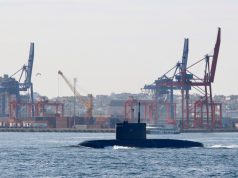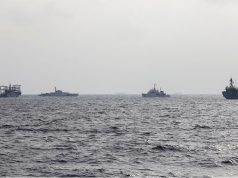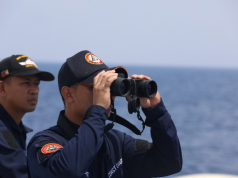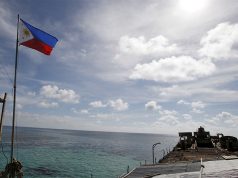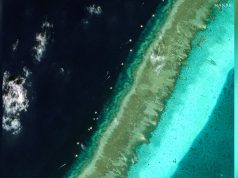
MANILA – Despite the promised benefits of a joint exploration project with China, critics warned that the venture was unconstitutional and an abandonment of the Permanent Court of Arbitration decision earlier won by the Philippines.
“The Duterte administration must not cavort with an encroaching neighbor like China by forging a joint venture agreement for oil exploration in the Philippines’ 200-nautical mile Exclusive Economic Zone (EEZ),” Albay Representative Edcel Lagman said.
“This projected joint venture is both unconstitutional and an abandonment of the Permanent Court of Arbitration’s decision which recognized the country’s sovereignty over the resource-rich West Philippine Sea against the spurious claims of China,” he added, referring to the July 12, 2017 judgment of the UN arbitral tribunal at The Hague, where Manila had lodged a three-year legal battle.
In a separate statement, the group Pambansang Lakas ng Kilusang Mamamalakaya ng Pilipinas (Pamalakaya-Pilipinas) said the Duterte administration’s plan to engage in a joint gas and oil exploration with China in the contested West Philippine Sea, could mean a “total surrender of our territory and patrimony to Beijing.”
West Philippine Sea is part of the country’s 370-kilometer exclusive economic zone (EEZ) and extended continental shelf (ECS); therefore, only the Philippines has the right to explore, develop, and utilize its natural resources as stated in the National Economy and Patrimony provisions of the 1987 Constitution, the group said.
“After all the hard work and tireless efforts we’ve made to make the world recognize our right in West Philippine Sea, the President seems to waste it all by approving joint oil and gas exploration in our water,” said former partylist Rep. Fernando Hicap, now current Pamalakaya chairperson
Hicap warned that with China’s more sophisticated exploration technology, “there would be nothing left to us.”
Earlier, Foreign Affairs Secretary Alan Peter Cayetano said the Philippines is in the process of negotiating such a joint venture agreement with an undisclosed joint partner, even as Chinese Foreign Minister Wang Yi said that China was open to the idea of a joint venture with the Philippines.
Lagman cited Section 2 of Article XII of the Constitution that provides that “State shall protect the nation’s marine wealth in its archipelagic waters, territorial seas and exclusive economic zone and reserve its use and enjoyment exclusively to Filipino citizens.”
Under the Constitution, he said the President can only enter into agreements with foreign-owned corporations for technical or financial assistance for large-scale exploration, development and utilization of marine wealth as mere contractors of the government, but not as joint-venture partners.
“Any joint-venture agreement negates the country’s exclusivity in the use and enjoyment of our marine resources for Filipinos and diminishes our territorial sovereignty,” he said.
“We must avoid the mistake of the expired Joint Marine Seismic Undertaking (JMSU) in 2008 among the Philippines, China and Vietnam which gave China full access in gathering valuable data on natural gas deposits in our country like the Recto Reed Bank where one field alone holds about 2.7 to 3.4 trillion cubic feet of valuable resources,” Lagman added.




